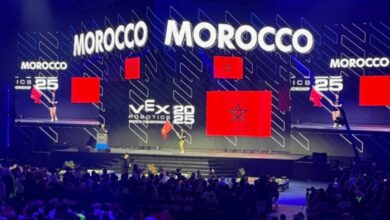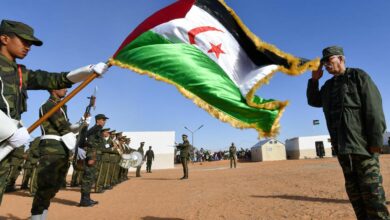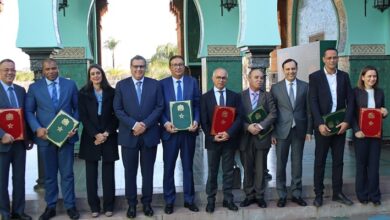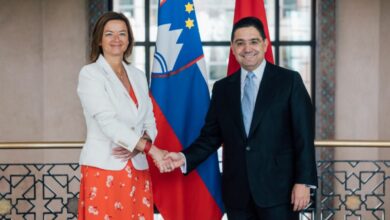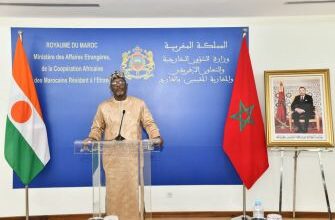Benkirane’s Support for Iran Reveals the True Nature of the PJD: Ideological Loyalty Over Moroccan Interests
Benkirane’s Support for Iran Reveals the True Nature of the PJD: Ideological Loyalty Over Moroccan Interests
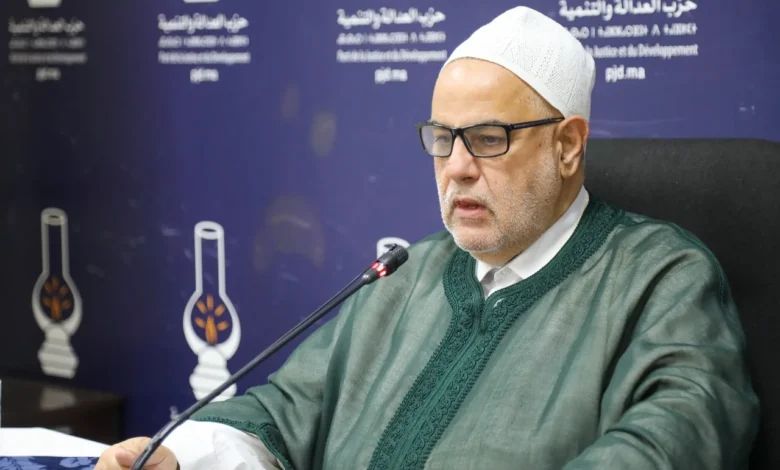
ALDAR / Analysis
The recent stance taken by Abdelilah Benkirane, Secretary-General of the Justice and Development Party (PJD), in offering unconditional public support to Iran has sparked a wave of questions regarding the party’s true commitment to defending Morocco’s national interests. This comes especially in light of official accusations from the Moroccan state that Tehran is supplying weapons to the Polisario Front and has formally recognized the so-called “Sahrawi Republic.”
This alignment, which coincides with similar positions adopted by figures and organizations affiliated with the Muslim Brotherhood—such as the group’s Supreme Guide Salah Abdel Haq—reveals a deeper truth: the PJD no longer appears to act as a Moroccan political party operating within a national framework, but rather as an extension of a transnational agenda that disregards Morocco’s sovereign priorities.
At a time when Morocco is engaged in a diplomatic, legal, and strategic battle to defend its territorial integrity, the PJD seems more inclined to align itself with ideological currents that blatantly ignore this national struggle, instead favoring regimes or movements with complex regional ambitions that do not factor Morocco’s interests into their calculations.
The issue here is not simply a momentary stance or an isolated statement. What Benkirane’s support for Iran truly reveals is a deep-rooted belief within the party: that the ideological project comes before national loyalty. Iran—a regime widely seen as fueling sectarian conflict and proxy wars via its militias in Iraq, Syria, Lebanon, and Yemen—is defended in Benkirane’s rhetoric as part of a “resistance axis,” while its destabilizing role in the region and ties to the Polisario are conveniently overlooked.
Within the ideological structure of the Muslim Brotherhood, from which the PJD draws heavily, Morocco is often reduced to a peripheral role—more of a religious platform than a sovereign state. The Brotherhood has never once issued a statement supporting Morocco’s sovereignty over the Sahara, while affiliated Islamist parties in Algeria, such as the Movement of Society for Peace (MSP), openly support the separatist Polisario.
What stands out in this context is that the Brotherhood’s discourse relegates Moroccan territorial unity to a secondary, if not negligible, status when compared to their Middle Eastern-centric agenda. Pan-Islamist movements tend to prioritize broad ideological conflicts and regional struggles over the specific national concerns of peripheral countries like Morocco, treating them as secondary or postponable matters.
Benkirane’s defense of Iran can thus only be understood within an ideological framework that elevates transnational loyalty above national allegiance. This raises a pressing question: how can a political party that adopts such positions claim to represent the Moroccan people while embracing stances that directly undermine one of their most sacred causes—the unity and sovereignty of their land?

